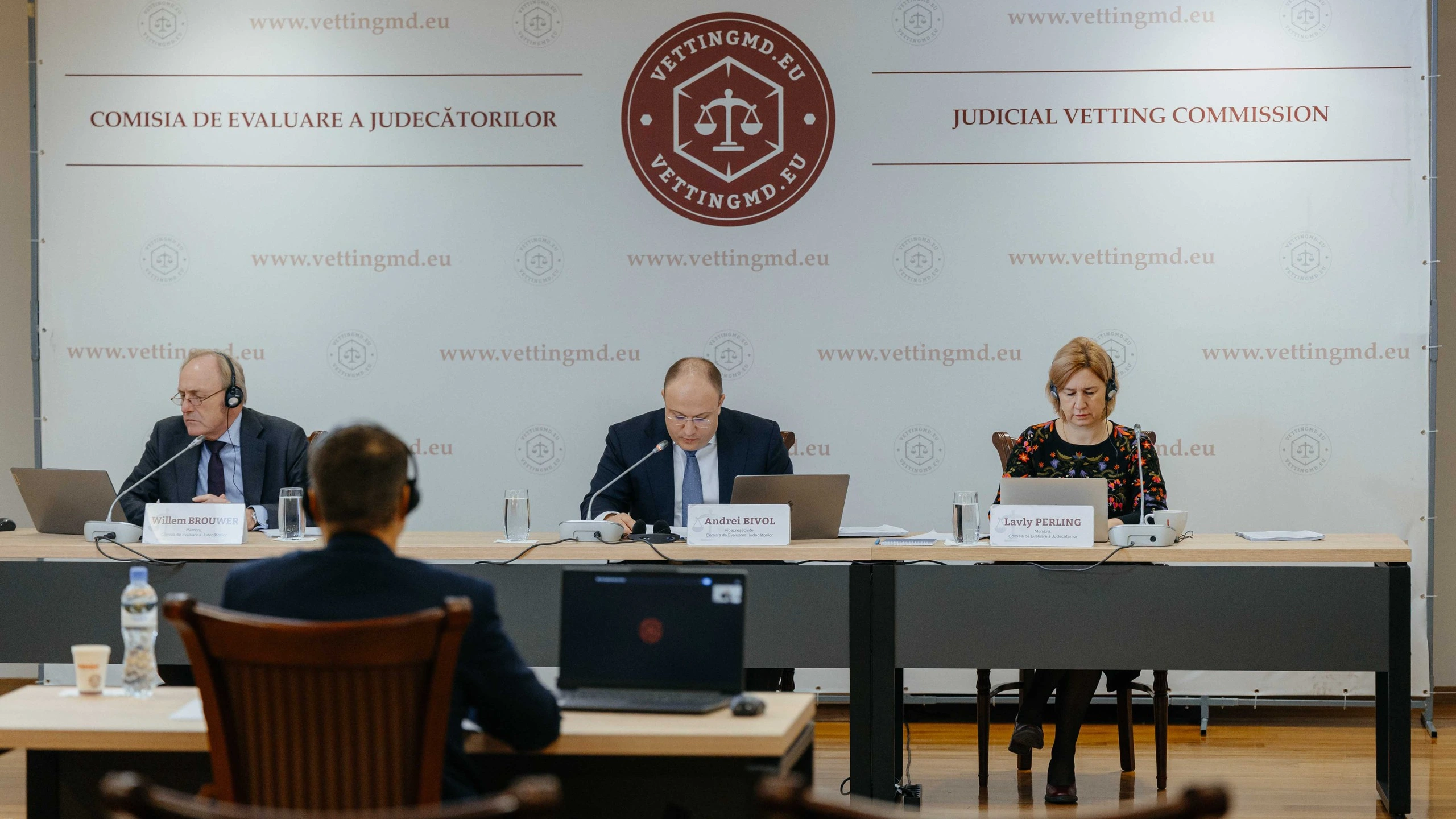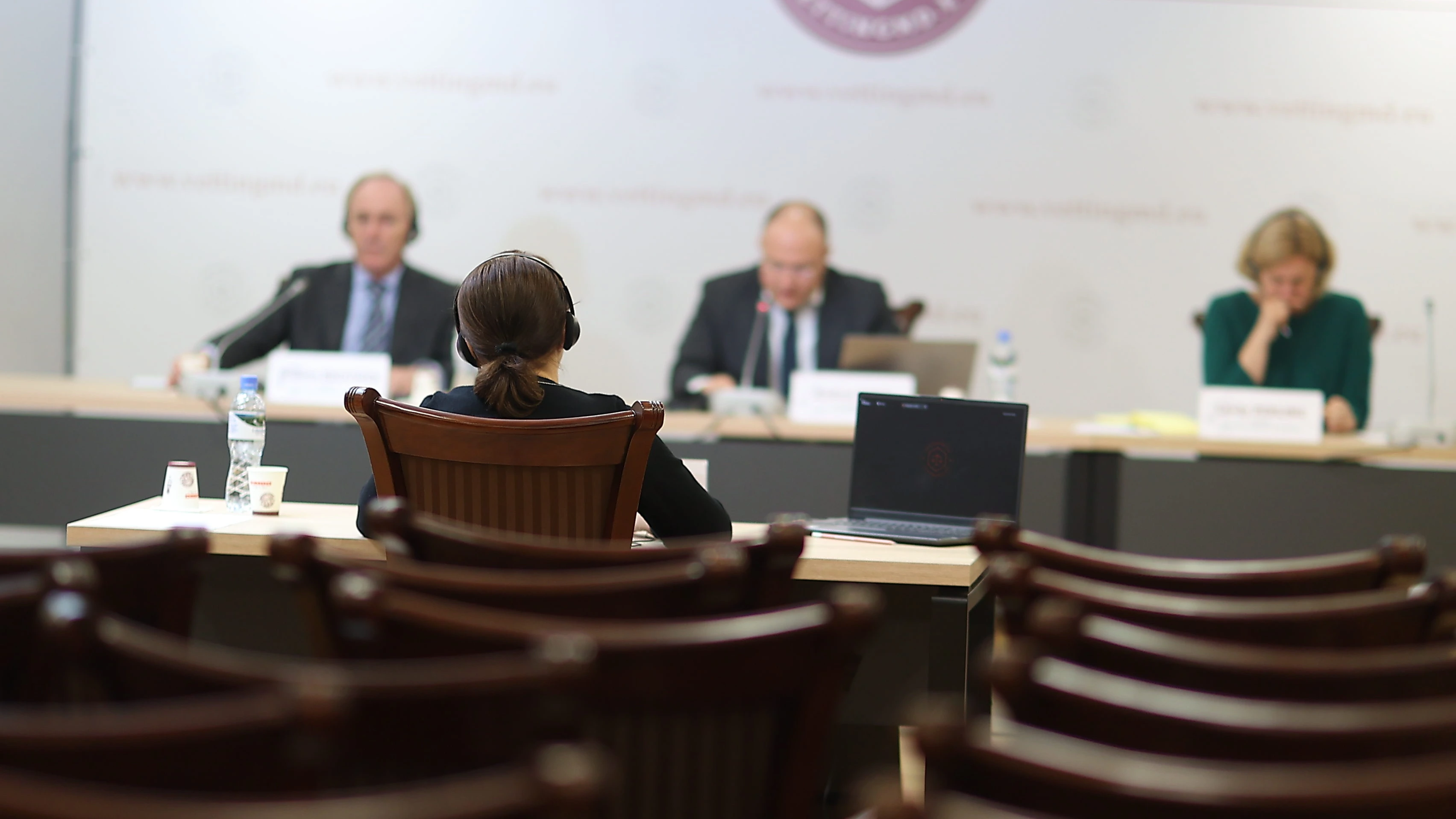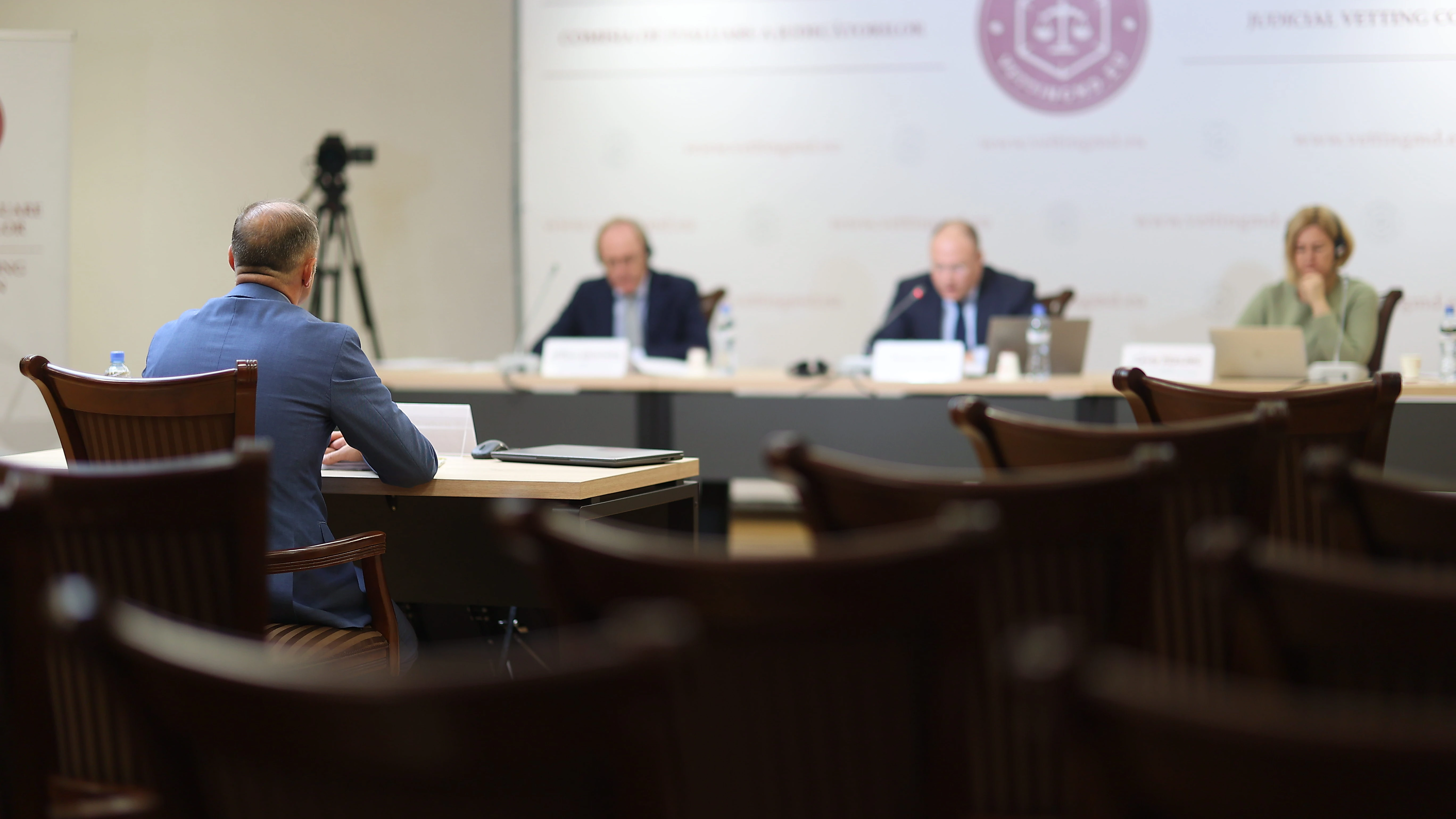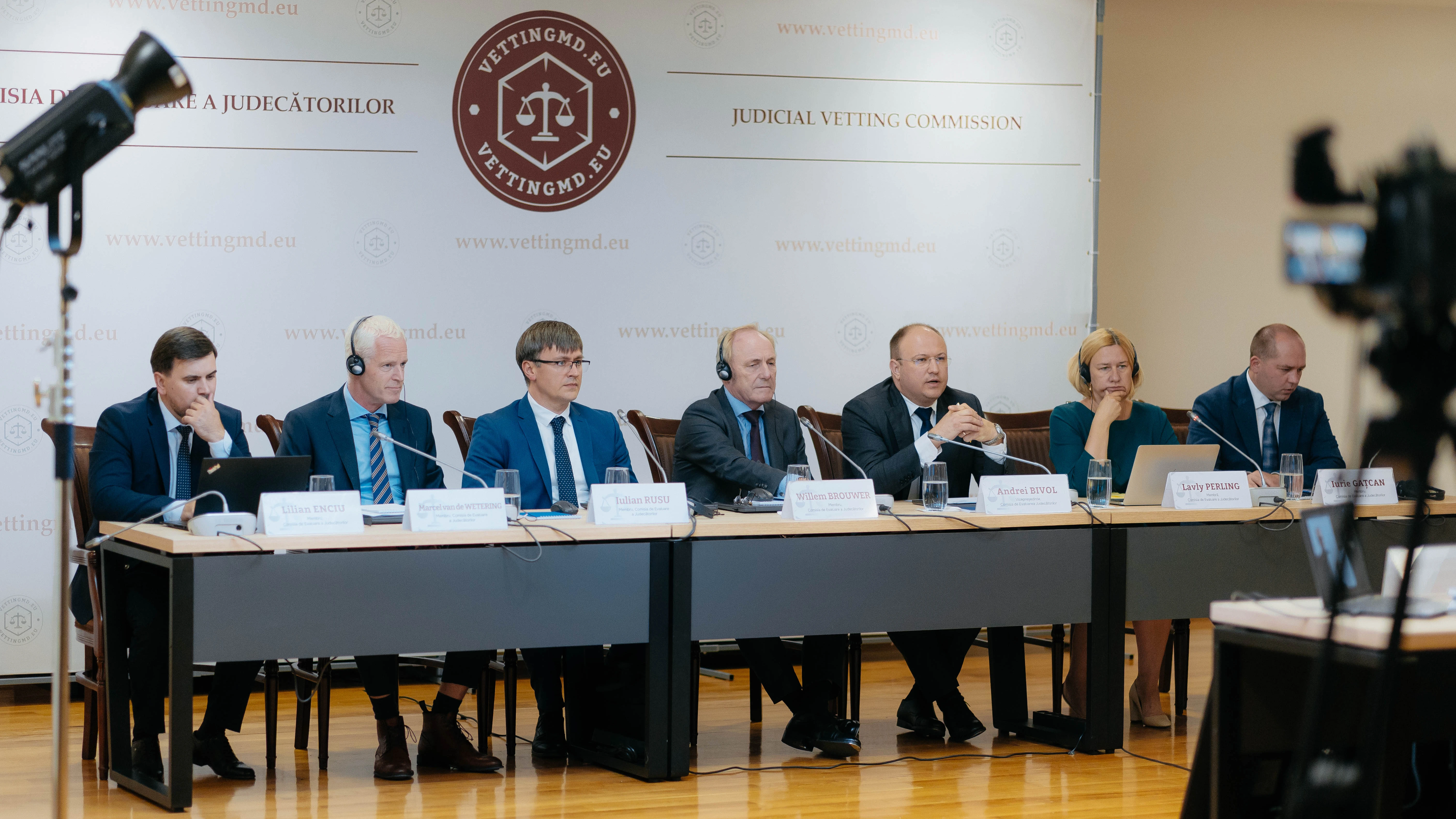Key aspects regarding the operation of the panels in evaluating certain categories of judges

For the evaluation of the integrity of judges from the Courts of Appeal, presidents and vice-presidents of district courts, as well as other categories of subjects in accordance with Law 252/2023, two evaluation panels will operate within the Vetting Commission. Here are some important aspects related to the functioning of these panels for a better understanding of the evaluation process:
1. Mixed composition: The six members of the Commission have been grouped into two evaluation panels, each consisting of three members, both national and international. This structure ensures a balanced and objective evaluation by combining local legal and cultural context with international perspectives and standards. The Commission reserves the right to modify the composition of the panels depending on workload.
2. Distribution of leadership roles: One panel is led by the Chair of the Commission, while another panel is led by the Vice-Chair. Both are responsible for coordinating and presiding over meetings and hearings. They are also responsible for signing reports and other documents related to the evaluation process.
3. Unanimity in decisions: Decisions within the panels will be made unanimously. If the members of the evaluation panel do not reach a unanimous vote, the evaluation report is reviewed by the full Commission. In this case, the report is approved by a majority vote of the Commission members, including the mandatory vote of two international members, and is signed by the Chairperson. Commission members may not abstain from voting.
4. Random distribution of files: To ensure the equitable distribution of cases, the files are randomly assigned to panels. In the event of the recusal of a panel member, the file may be transferred to another panel, and the Commission will inform the subject of the change in the panel.
5. Flexibility in replacing panel members: If a panel member is unable to attend a hearing, they may be temporarily replaced by a member from the other panel. If replacement is not feasible, the hearing will be rescheduled. Additionally, only the Chair of one panel may replace the Chair of the other panel, ensuring continuity in the evaluation process.

.svg)














.webp)





























.webp)















.webp)






















.webp)








.webp)
.webp)


